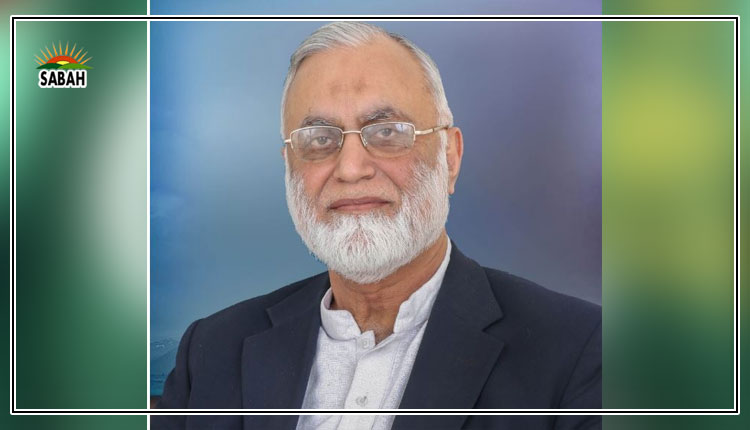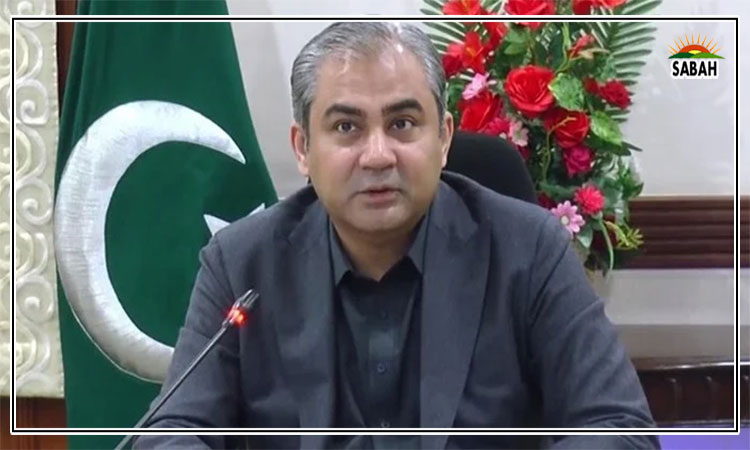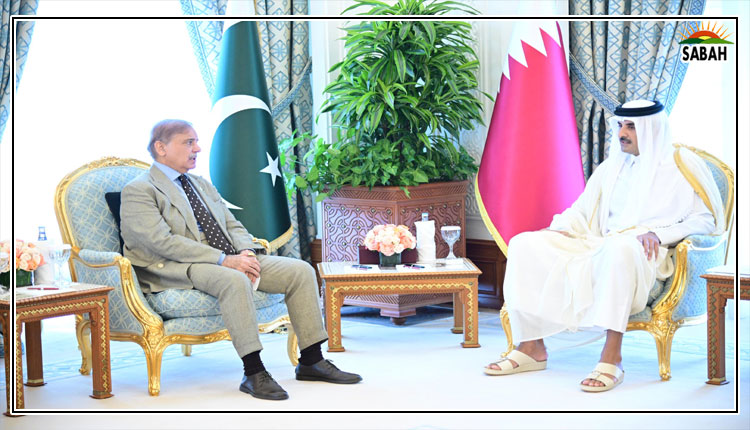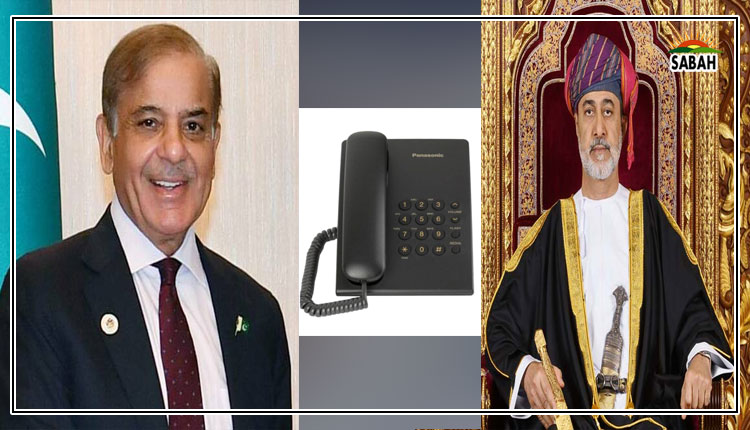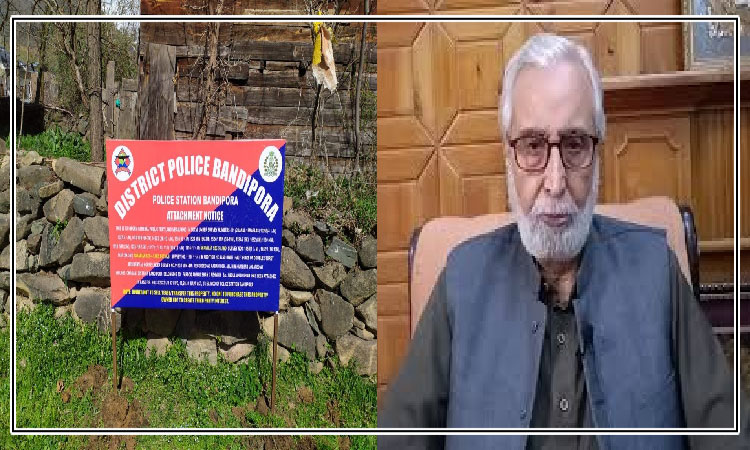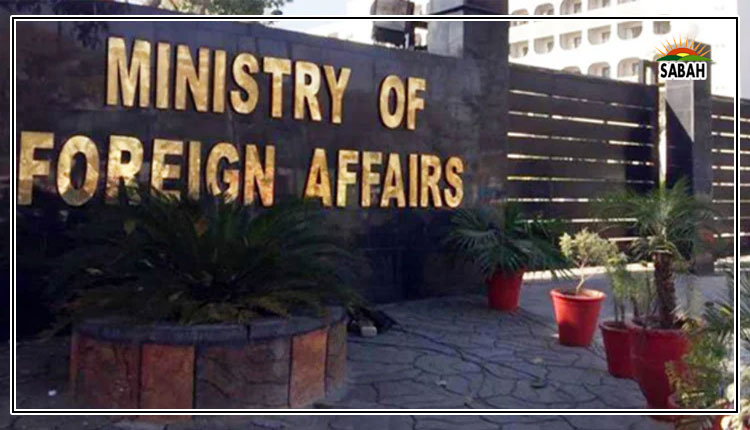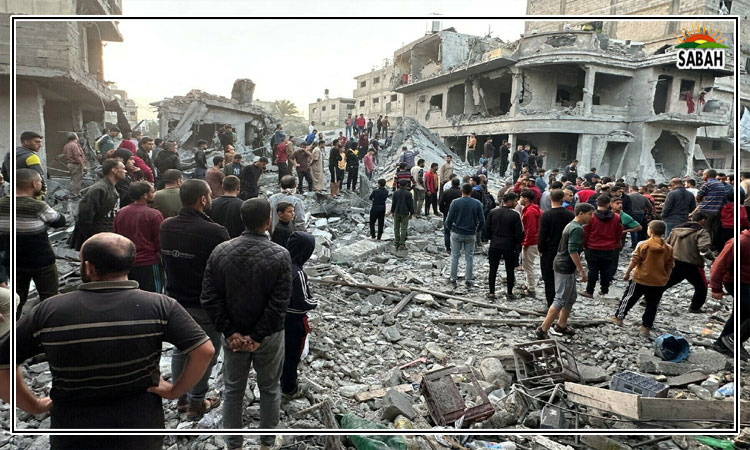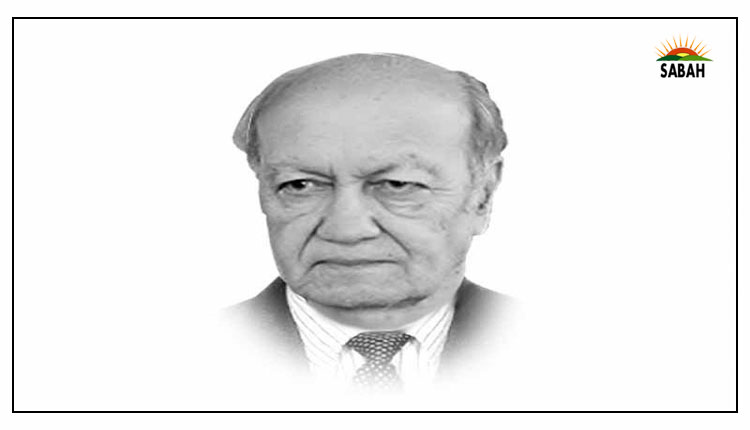Pakistan’s destiny hangs in the balance…. Talat Masood
The conditions in Pakistan have reached a dangerous tipping point. It is a make-or-break situation. The same old policies that undermine the rule of law, even allow digression from constitutional path, based on whims of individuals or misplaced institutional ambitions have to come to an end. Saner voices have to be heard and their views seriously taken. Experimenting on ideas and thrusting them on a weak and molested state will further make it anemic and gasping for breath. The urgency and importance of having free and fair national elections cannot be overemphasised. Manipulating delays and distorting the laid-down election process is a recipe for disaster. It will throw up leadership that has no backing of its people nor the capabilities to steer the country. No individual or institution should be allowed to overstep his own domain and live under the belief that he has the wisdom or the patriotic fervour that allows it to circumvent laws, constitution and age-old proven practices of governance and democratic conduct.
The central question is how this can be achieved. And to many it may sound idealistic. But is it? Is adhering to the constitution and pursuing activities within the bounds of law abnormal or the opposite of it? Are we not seeing as a living proof that countries that have built strong democratic institutions and a sound legal framework and remain within its given parameters are stable, strong and economically independent? More significantly, are we blind to our major shortcomings and in a state of self-deception about the fallacy of creations such as hybrid democracy presuming it is good for us? And does this presumed uniqueness give us the licence to keep experimenting with ideas and power structures devoid of peoples involvement? The country cannot remain hostage to politics motivated by self-interest. Let all those who control the destiny of the country politicians, military leaders, bureaucrats, economists and businessmen earnestly and sincerely endeavour in correcting course. Major responsibility for assuming this legally rests with the political leadership and the government in power. However, with the parliament dissolved and the interim government a passing phase there is no real centre of power or focal point. It is not surprising that in this void, the army leadership shoulders the foremost responsibility.
In these testing times the role of the intelligentsia in feeding the nation with ideas through the medium of media, seminars and conferences has been so far limited and disjointed. During election campaigning, individuals representing their respective political parties are expected to seriously discuss programmes and policies of political parties and issues of bread and butter affecting the lives of the masses. Policy mismanagement and interference and meddling by institutions in each others domain has hurt the economy, rocked the boat in international markets and compromised the countrys domestic stability. Moreover, the political parties democratic credentials in most cases need to be challenged during elections. Most of the major political parties are treating their parties as their fiefdom. PML-Ns top leader Nawaz Sharif in the past for a while has been championing the cause of undiluted democracy, but he has now strayed and is compromising for short-term gains. The question is: how will these intricate and deep-rooted national party problems be addressed or are they going to continue to simmer? It is only by engaging in serious discussion on these issues in the media, the parliament and within the political parties that a consensus could develop that will build pressure to correct these. Manipulating elections with which our history is replete will only make the kind of negative forces that act as a drag on building democratic culture even more powerful. What is required is that political reforms and institutional development be given high priority and be a part of the election manifesto to build awareness among the voters of its significance. The Pakistani blend of democracy and authoritarianism has only partially opened up political space for meaningful reforms as witnessed during the last decade. The challenge for Pakistans leadership is to engage the people and gain their trust and convince them that they are able to respond to their needs. So far, few leaders have succeeded in restoring this level of confidence and even that too for a short while as their promises never or only partially materialised.
In essence, the foremost challenge is to reform state institutions and convince its leadership that it is in the larger and collective interest to remain within constitutional limits and pursue policies that will move the country forward. Our seventy-six years of history has time and again shown that democracy is fragile and has not taken root. Mismanagement by political leadership and armys capture of power through direct take-over or by influencing the civilian government has weakened democracy and lowered the image of leaders in the eyes of the people. Nor has it had any positive influence on the economy. Of course, there were other factors too that have been pulling the economy down such as misuse of government expenditure, widespread corruption and mismanagement of public sector entities during civilian rule. Pakistans anemic economy and political uncertainty has even caused investments from our close allies to shy away.
While addressing these issues in our country we also need to rethink the complex interaction between politics, economics and foreign policy that is currently taking place in a globalised interdependent world. It is encouraging that Muslim countries too are trying to keep pace in a fast-changing world. Indonesia, Malaysia and Turkey are fairly successful democracies and have been able to significantly raise the standard of living of their people. In the Middle East, Saudi Arabia is undergoing a remarkable change under the dynamic leadership of Crown Prince Mohammed bin Salman Al Saud. As the world is changing at a rapid pace, the leaders with foresight are trying to keep pace with it. Pakistan cannot be an idle spectator to these fast-changing developments and continue to slide. Despite the pitfalls of the past towards improving the conditions in our country, the coming elections once again provide the leadership an opportunity to galvanise the nation for a better future. The participation of people in large numbers in the forthcoming elections and their choice of the right leadership is critical.
Courtesy The Express Tribune, September 20th, 2023.


